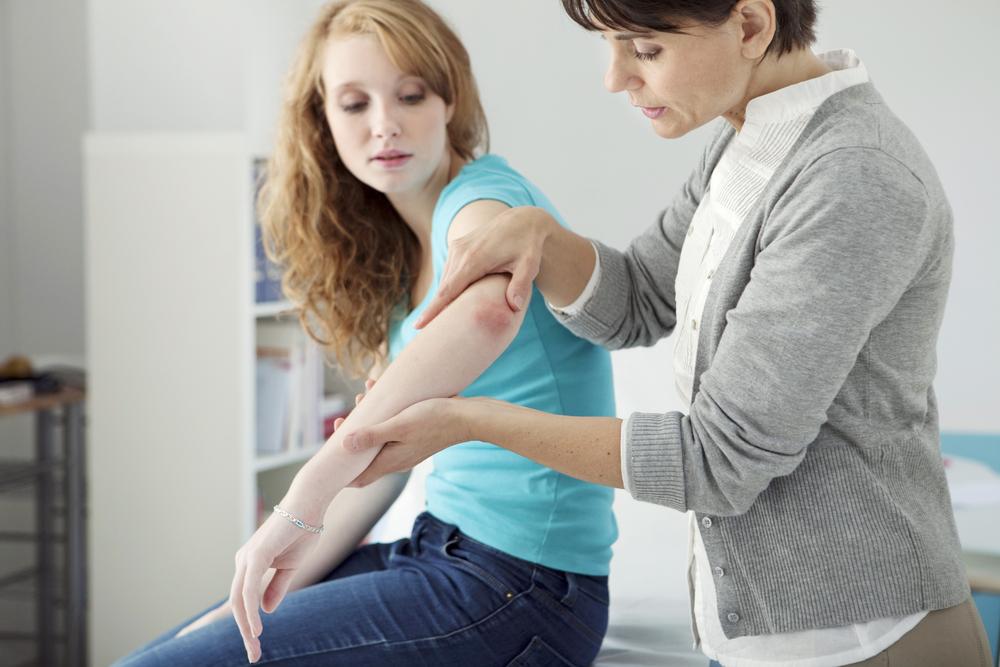Everything That You Need to Know about Psoriasis
Psoriasis is a long-lasting auto-immune disease that causes raised, red, scaly patches to appear on the skin. There are five types of psoriasis, namely, plaque psoriasis, guttate psoriasis, inverse psoriasis, pustular psoriasis, erythrodermic psoriasis that mostly affects the outsides of the elbows, knees or the scalp. It can vary in severity from small patches to covering the entire body. Apart from the scaly patches, it is also itchy, it burns, and stings.
Psoriasis can appear anywhere from the eyelids, ears, mouth and lips, skin folds, hand, and feet, to the nails. Depending on the skin where it appears, each requires different treatments.

Scalp: Psoriasis on the scalp is usually mild with some fine scaling. It can also be very severe with thick, crusted plaques that cover the entire scalp and can extend beyond the hairline onto the forehead, the back of the neck and around the ears.
Face: Psoriasis on the face can be often found on the eyebrows, the skin between the nose and upper lip, the upper forehead and the hairline.
Hands, feet, and nails: One must treat psoriasis on the hands and feet with proper care. Changes in nail occur for almost 50 percent of the people with psoriasis and to at least 80 percent of people with psoriatic arthritis.
Genitals: Psoriasis in the genital region is most commonly inverse psoriasis, but the other forms can also appear, especially in men. It requires careful treatment and medication.
What are the causes of psoriasis?
- The exact cause of psoriasis is still unknown but many scientists and doctors believe that the immune system and genetics play a major role in the development of this disease. It is usually some trigger, like stress or anxiety that causes psoriasis to flare.
- Skin cells in people suffering from psoriasis grow at an abnormally faster rate thus causing the build-up of psoriasis lesions.
- Both men and women can develop psoriasis at equal rates.
- It often develops between the ages of 15 and 35 but can occur at any age. Only 10 to 15 percent of people may get psoriasis before the age of 10.
- It is not contagious or something that someone can ‘catch’ from other. And neither are psoriasis lesions infectious.
What are the symptoms of psoriasis?
Psoriasis signs and symptoms may vary from person to person and it also depends on its severity. Some of the common signs and symptoms include:
- Red patches on the skin covered with thick, silvery scales.
- Small scaling spots, commonly seen in children.
- Dry cracked skin, which may cause bleeding.
- Burning, itching or soreness or all together.
- Pitted, thickened or ridged nails.
- Stiff and swollen joints.
There are no special blood tests to diagnose psoriasis. If you suspect that you have psoriasis, consult the doctor for examination and also tell the medical examiner if your psoriasis causes you discomfort and makes performing routine tasks difficult or leads to joint problems, such as swelling.
What are the treatments for psoriasis?
- Psoriasis cannot be cured completely, but treatments can help better the condition.
- Treatments for psoriasis can reduce the inflammation and help to clear the skin. They can be divided into three main types: topical treatment, systemic medications, and light therapy.
- Topical treatments like usage of ointments and creams can effectively treat mild to moderate psoriasis. For severe conditions, along with creams, one needs to take oral medications or light therapy.
- In light therapy or phototherapy, natural or artificial ultraviolet light is used to treat psoriasis.
- A number of alternative therapies also can help to treat psoriasis, including special diets, creams, dietary supplements, and herbs.

